Who is the most popular U.S. political figure?
Maybe Democrats can learn something from them
There is a lot of debate right now over why and how the Democrats lost the 2024 election, and what to do about it before 2026. The takes have been catalyzed by recent surveys showing the share of adults who view the party favorably at an all-time low, with especially low enthusiasm among the base.
I’m not going to wade into that all right now (I do have a take simmering about winning back disaffected voters, and especially young men), but yesterday I had a related question when reading some of the recent polls that I thought would make a fun, short, chart-oriented post: If the Democratic Party brand is so bad, is there a Democratic (or Democratic-aligned) politician that could shore up their support? What politician, and style of politics, should Democrats model their next campaigns on?
Let’s dive into the polls and add some data to the debate:
This all started to take up more space in my mind when friend of the blog and elections analyst for Split Ticket, Lakshya Jain published a nice article in Politico Magazine last week about the unpopularity of the Democratic Party today. He writes that the decline is largely due to unhappy partisans, which means somewhat little for aggregate outcomes (my analysis, he may disagree) but a lot for intra-party politics (primaries, legislative pressure, etc.):
Just 40 percent of Democrats approve of the job performance of congressional Democrats, compared to 49 percent who disapprove. That’s a dramatic change from this time last year, when 75 percent of Democrats approved compared to just 21 percent who disapproved. The Democratic base’s disillusionment runs so deep that it’s eerily reminiscent of Republican grassroots sentiment in the period leading up to Donald Trump’s takeover of the Republican Party. [….]
The closest partisan parallel to the level of anger currently gripping Democratic voters would be roughly a decade ago, when Republican political unknown Dave Brat toppled House Majority Leader Eric Cantor in a shocking 2014 primary upset.
Two years later, Trump tore through a crowded field of accomplished establishment candidates and forever upended Republican politics.
And presents this chart:
That’s a good chart. The Democratic Party is about as unpopular with their voters today as Republicans were with theirs in 2013-2015. That’s why people are saying we are on the verge of a “Democratic Tea Party.” (Maybe more like a “Boba Party”?)
Ok, but maybe this isn’t all bad news. Michael Cohen (no, not that one) over at Truth and Consequences asks “How Dead are Democrats?” and answers, well, maybe not that dead; Thanks to doing better with educated voters, who turn out more often, Democrats will probably win the House of Representatives in the 2026 midterms. And here’s my analysis: Republican Party favorability per CNN/SSRS was -21 in 2013 (compared to -28 for Democrats today), and over the next 2 cycles Republicans won the House, Senate and Presidency as well as a high over the last century in state legislative trifectas. So, yeah, maybe not that dead.
But the party does evidently have a branding problem. This left me wondering: Who in the party today has a message that resonates with voters? Who could they pick for 2028, or who is a good figure to model a campaign on?
To arrive at an empirical approximation of answers to these questions, I collected all the questions in the past three months of YouGov/Economist polls that ask voters to say how favorably they view prominent political figure or possible 2028 candidate. Then I picked out notable figures, and graphed their net favorability rating (the share of adults saying they viewed the person/party favorably minus share saying they viewed the person/party unfavorably) in the most recent result. Here are the results of this fun, quick analysis:
Vermont Senator Bernie Sanders gets the #1 spot, with 46% of adults saying they view him favorably and 39% unfavorably. That’s pretty good, but if you’re trying to think about a candidate who can win back some of the voters Democrats lost from 2020 to 2024, it is notable that Sanders is also net favorable with young people (by nearly 20 points), lower-income voters, moderates, independents, Hispanics, Black voters, and men. And he’s only two points underwater with white voters:
One theory for Sanders’ relative crossover appeal is his emphasis on criticism of the system — something young men in particular shared with him in 2016, and which left them open to the appeal of Trumpism in 2024 (especially post inflation in 2022-2023). Sanders’s campaigning against the neoliberal consensus is persuasive with the many voters (and again, especially young people) that believe has left them behind. Trump was the voice for this cohort in 2024, as Sanders was in the 2016 primary (and to a certain extent in the 2016 general). Maybe Democrats can learn something from that.
Meanwhile, Chuck Schumer, at -33, is almost as unpopular as the oh-so-toxic Democratic Party (at -35). Elon Musk is the most unpopular GOP-aligned major official. Alexandria Ocasio-Cortez and Pete Buttigieg are more popular than Trump and J.D. Vance. J.B. Priztker, the Governor of Illinois, is also net even with adults, but this is partly due to very low name ID (i.e., I suspect if he was subjected to more negative press by Fox News, he’d also be net negative because more Republicans would say “unfavorable” instead of “don’t know”).
Please discuss in the comments. What magic is Bernie Sanders conjuring? Is Sanders a good pick for Democrats in 2028? He will be 86 years old. Maybe we’ll get a Sanders-Trump proxy battle?
At any rate, it is an interesting chart.


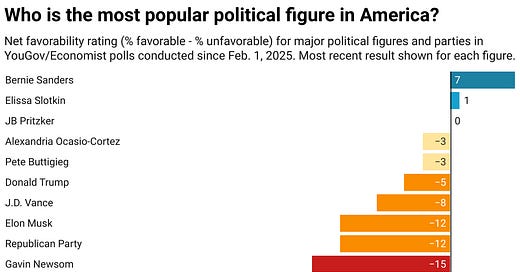


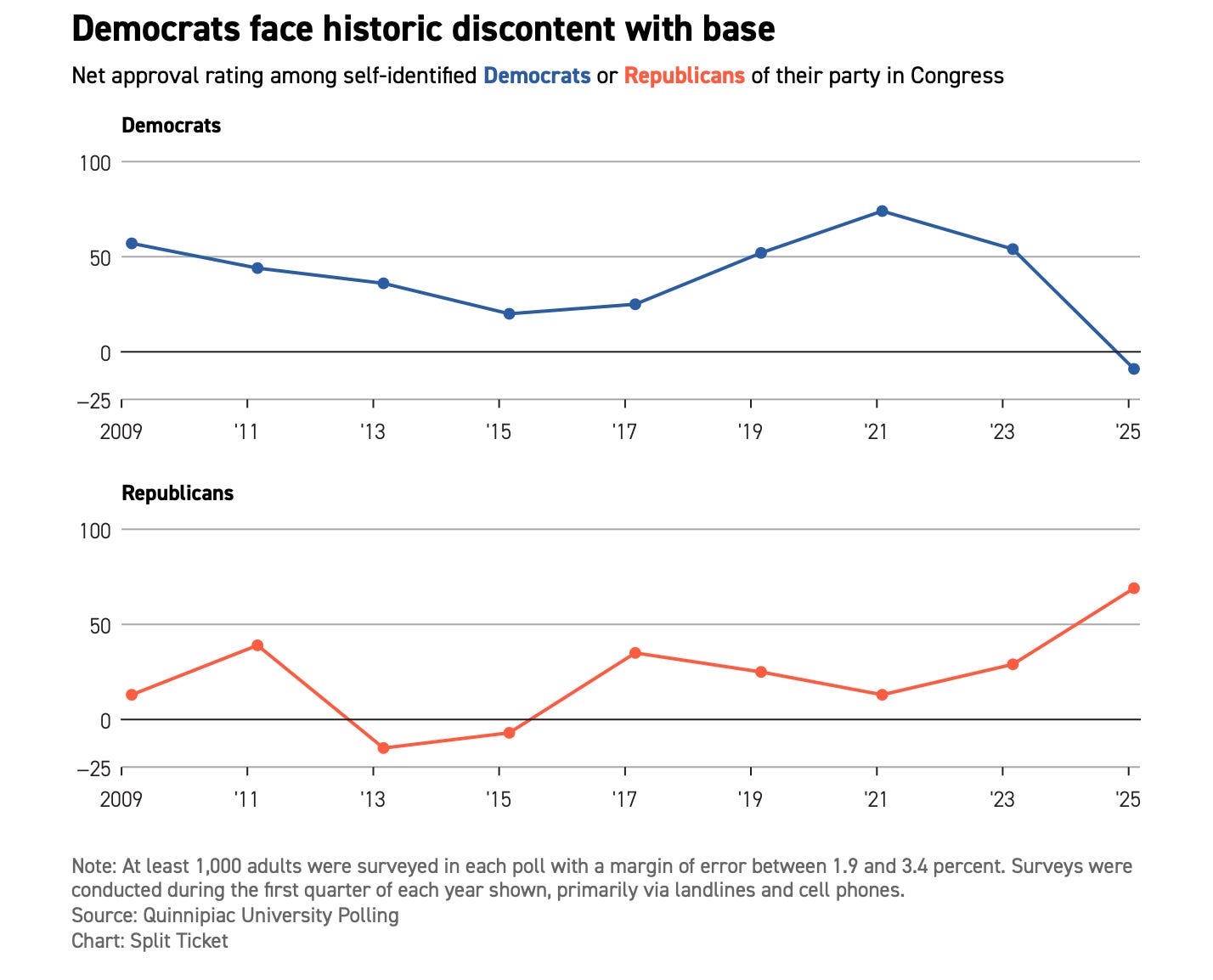
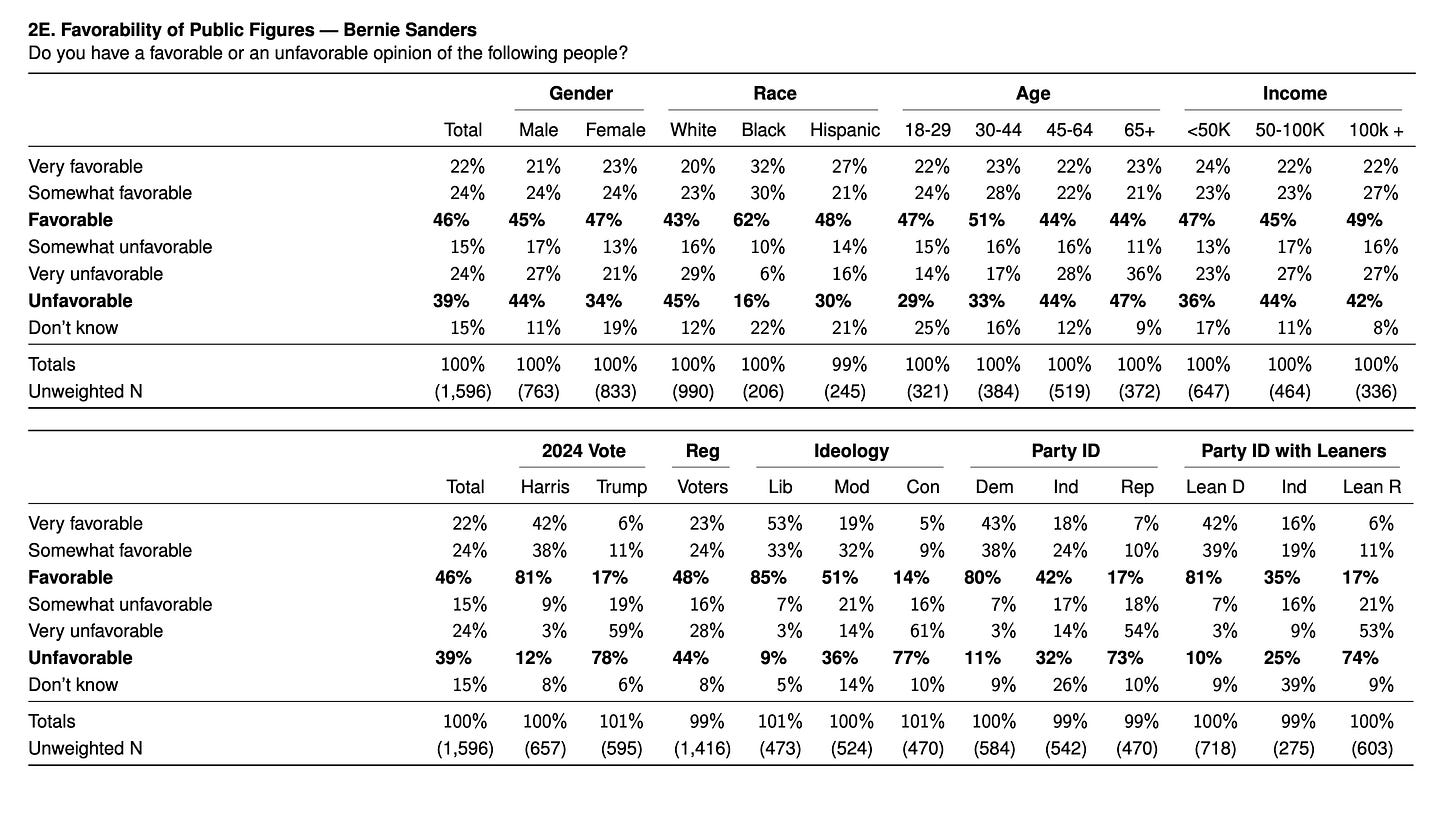





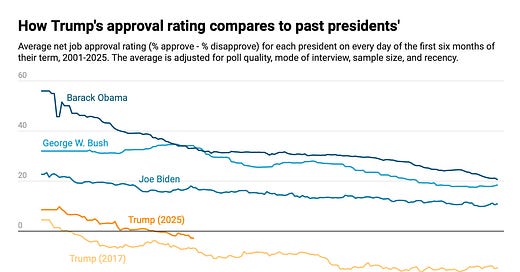

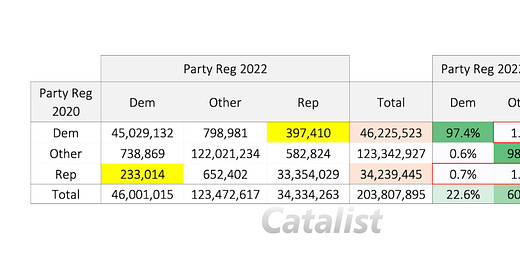

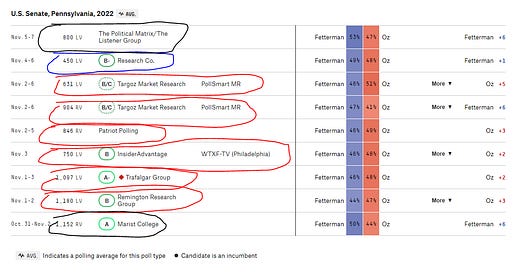


I wasn’t a Bernie supporter in 2016, or 2020. And while I’ve always liked AOC for her fighting spirit and charisma, I imagine I would not be a fan of many of her economic proposals under normal circumstances.
But the past year has fundamentally changed how I think about the interaction between great wealth and political outcomes, and AI seems bound to further concentrate wealth and technological power.
Basically, I think this is the Bernie/AOC moment, and I’m not surprised that they’re drawing big crowds.
PS: I’m a big Pritzker fan too, and Slotkin seems pretty cool. I was pretty happy with the top of the list.
His "magic" is being consistent with the same pro working-class message for 40 years.
I can't think of another US politician who has built more credibility than Sanders. Whether you agree with all or only some parts of his vision, he IS the genuine article and that's what people respond to.
If other politicians want to get there, they need to stop taking PAC money and only accept small-donor contributions.